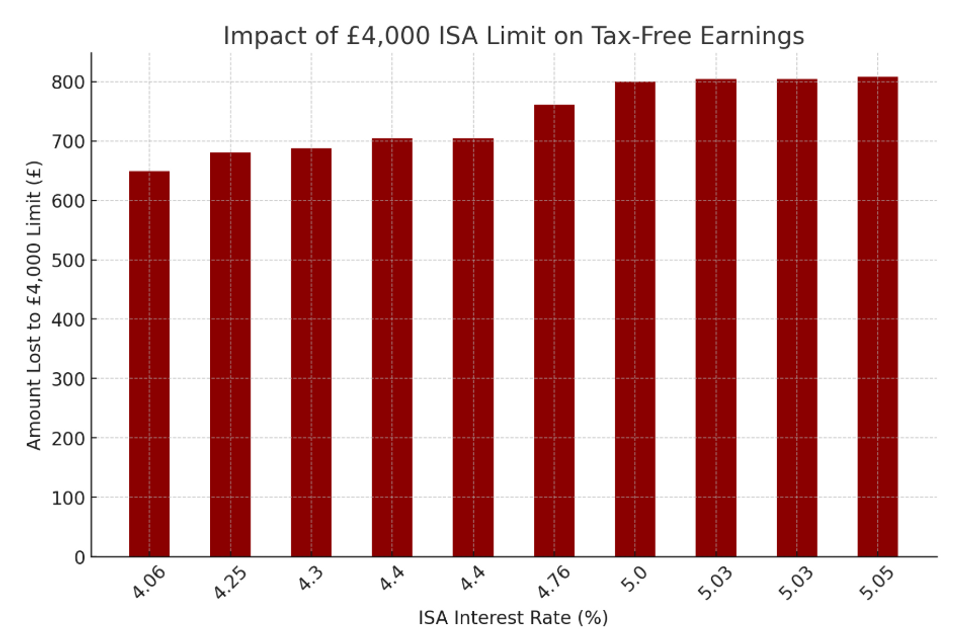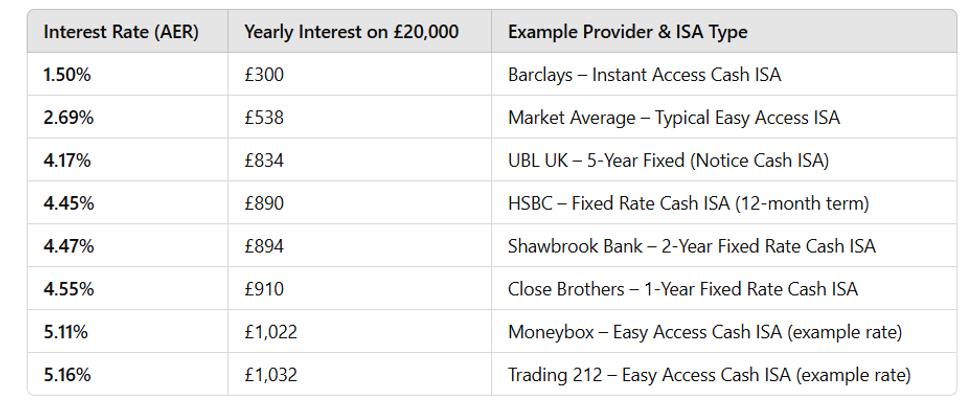British savers have been dealt a “sucker punch” by Chancellor Rachel Reeves’s reforms to ISAs as billions of pounds in savings could be slapped with more tax, analysts warn.
During yesterday’s Budget announcement, the Chancellor confirmed plans to reduce the annual cash ISA tax-free allowance from £20,000 to £12,000 starting in April 2027 for under 65s.
This has as triggered fierce opposition from building societies, as fresh data reveals more Britons have been rushing to maximise their current allowances before the stealth tax raid on savings.
Analysis of CACI figures by Paragon Bank demonstrates that ISA deposits surged by £46.9billion during the initial seven months of 2025, climbing from £378.7billion to £425.0 billion between January and August.

This dramatic increase occurred while standard savings accounts experienced an £11.3billion decline over the identical timeframe, suggesting savers were actively transferring funds into tax-efficient wrappers ahead of anticipated changes.
Harriet Guevara, the chief saving officer at Nottingham Building Society, condemned Ms Reeves’s move as “a sucker punch for savers and deeply disappointing for lenders”.
She acknowledged the Labour Government’s objective to promote investment culture across Britain’s economy but argued that “restricting choice is not the way to do it”.
The timing particularly troubled her, noting that reducing the limit “sends a difficult message to households who are trying to do the right thing” during a period when financial confidence remains weak.

Building societies view the reduction as counterproductive to encouraging responsible saving habits among ordinary families.
Ms Guevara revealed that two-thirds of Nottingham Building Society’s Cash ISA customers have already utilised the complete £20,000 annual limit this year.
She emphasised these savers “aren’t people with excess wealth – they’re individuals and families working hard to save for the future”.
The building society’s data indicates merely 38 per cent of cash ISA account holders across the country would contemplate moving their money into stocks and shares ISAs if the Government implements the proposed reduction.
This reluctance to switch investment vehicles suggests the policy could fail to achieve its stated goal of encouraging greater participation in stock market investments.
Furthermore, the building society executive warned that restricting cash ISA contributions contradicts the Government’s stated commitment to doubling the mutuals sector’s size.
She argued the policy could reduce mutual lending capacity, restrict homeownership opportunities, and hamper the expansion of building societies that channel profits back to members and local communities.
Ms Guevara stressed that encouraging investment requires comprehensive financial education alongside policy changes, stating: “The UK still faces a serious gap in financial literacy, and too many people lack confidence in navigating alternatives.”

Andrew Wright, the head of Savings at Paragon Bank, added: “We’ve seen a marked increase in customers opening fixed-term ISAs this year, which reflects a growing appetite for certainty and tax efficiency.
“Fixed-term ISAs have not only attracted the highest rise in balances but also the largest growth in account openings, as savers look to lock in competitive rates ahead of a likely reduction in the Bank of England base rate in the coming months and the growing speculation of a cut to the cash ISA threshold as we approached the Budget.
“This behaviour shows that customers are acting decisively to secure returns and maximise their tax-free allowances while conditions remain favourable.”
GB News readers can find out how much they will save or lose a year from the Chancellor’s tax reforms by using our free calculator.
Our Standards: The GB News Editorial Charter







Follow